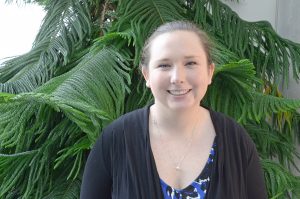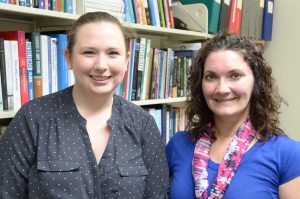A Brock University study wants to examine the plight of children and youth tasked with taking care of family members who are sick, disabled, substance abusers or facing similar challenges.
Statistics Canada reported that in 2012, 27 per cent of youths and young adults from 15 to 29 in Canada provided some form of care to a family member or friend with a long-term health condition, disability or aging needs.
But Brock Master’s student Cayleigh Sexton is taking the research a step further by studying children and youth from 12 to 18 who have to deal with parental-type roles.
Cooking, cleaning, administering medicines and putting their younger brothers and sisters to bed are some of the added responsibilities they take on in fulfilling their caregiving role.
This is a situation that brings with it challenges and blessings, Sexton says.
“Young carers are everywhere, yet they are hidden and they don’t necessarily share their role with other people,” she says. “It’s important that we step up and understand that these children do exist and that we need to support them. There are no systematic things in place yet that help them.”
Sexton is looking for 55 children and youth, ages 12 to 18 years old, who are taking on extra responsibilities because of a family member’s chronic illness, disability, mental illness or other condition.
The participants can be from the regions of Niagara, Haldimand-Norfolk, Halton and Toronto, and will need answer a 30 minute in-person or online survey exploring the stresses they experience as young caregivers.
Sexton is researching the factors that cause stress among children and teenaged caregivers and the possible negative outcomes of loneliness, low self-esteem, depression and anxiety.
“The research results will be used to better understand daily stressors of caregiving and the types of coping strategies that can help minimize the negative impacts of this role,” explains Sexton.
She will also examine the unexpected benefits that young caregivers may experience.
“Research has shown there can be increased maturity and resilience among young carers,” says Sexton. “A lot of them are validated in that role and feel like they’re doing something meaningful in their family. I want to make sure we see both sides of the situation.”
In Canada, little is known about young caregivers. According to the Stats Can report, 1.9 million young Canadians aged 15 to 29, provided some form of care to those around them.
But those numbers don’t capture children under the age of 15 who are taking on the caregiver role.
A non-profit organization in Niagara called Young Carers Initiative — Powerhouse Project provides activities and supports for children and youth in caregiving roles.
As part of its activities, the group partnered with Brock University Child and Youth Studies Associate Professor Heather Chalmers to produce a study called “Hear Me Now: The Hidden Reality of Young Carers.”
Published in 2007, this was the first study in Canada that explored the experiences of child caregivers and recommends ways to support them. Since then, Chalmers and her students have continued to learn more about young carers and how to effectively support them.
Findings from the 2007 study include:
- Some young caregivers experience depression, eating disorders, self-injurious behaviour, drug abuse and bullying
- Few friends were aware of their situation and limited emotional support was offered by those who knew of situation
- Caregivers worry about their parent perhaps as a result of lack of knowledge about the illness and outcomes or because they feel they are the best person to take care of their parent
- Positive aspects reported were that they liked the “preparation for adulthood” and the maturity caregiving offered
“The 2007 findings were the basis for obtaining support for the development of the Powerhouse Project Program,” says Chalmers, who is Sexton’s research supervisor.
“Our partnership with Powerhouse continues as they use our findings to refine their programs to most effectively meet the needs of young carers. Cayleigh’s research is important for understanding how best to support young carers who struggle with the stress of being a caregiver.”
People interested in participating in the study should contact: chalmerslab@brocku.ca or 905-688-5550 x5534.











